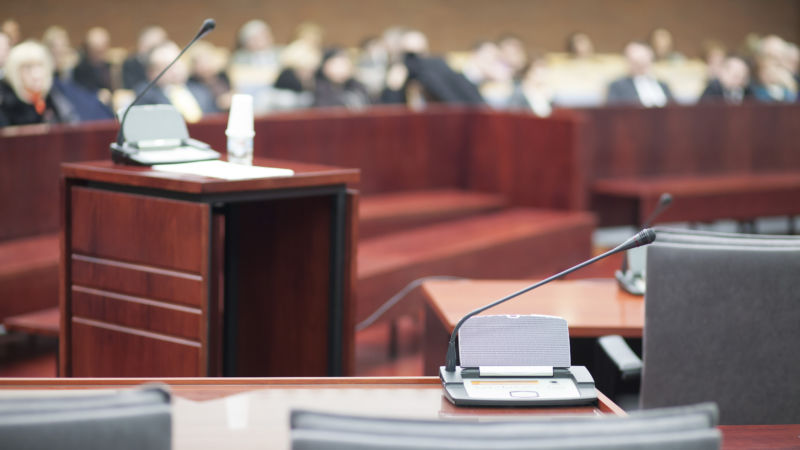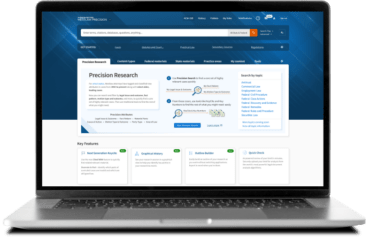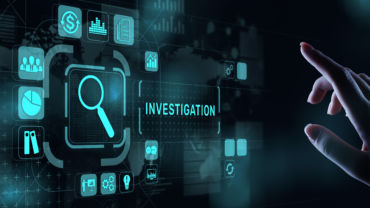Before cross-examining them on the stand
Cross-examination. The moment that can make or break the credibility of a witness. Given the magnitude of the potential impact that witnesses on the stand can have in a case, lawyers must decide if cross-examination is pertinent, or even wise. It’s crucial that lawyers plan questions to ask the witness and identify key points to drive the case forward. But how do you know if cross-examination of a witness is crucial to a case?
When cross-examining a witness, you need to feel confident that you know everything about them. From criminal records to finances, business relationships to motor vehicle records, a public records search can determine if witnesses are credible and prevent discrediting information from surfacing. Here are 18 important things that you can uncover through a public records search about any witness prior to putting them on the stand:
Finances
1. What is the witness’ financial history? Have they ever declared bankruptcy? Could they have been swayed financially? Having a clear picture of their financial history may inform potential background weaknesses that could be significant to the legal proceedings.
2. Do they have international finances or businesses that could be tied to money laundering or known criminal organizations? Exploring national and international records can clear up any uncertainties.
Aliases and name variations
3. Are there spelling variations of their name that could pull additional, relevant records? Using a public records tool that accounts for misspellings, maiden names, or married names can ensure that all relevant records are included in the background search and reviewed while vetting a witness.
4. What Department of Motor Vehicle (DMV) records exist? DMV records can confirm the basics like the witness’s address and type of car he or she drives. However, if a witness appears to be driving a car outside of their means, this could be a red flag to dig deeper into their financial situation.
5. What information is a partial match to the person you’re researching? For instance, is there a match during records searches that includes the correct name and address, but the last digital of the social security number is off? If so, reviewing these public records may expose additional records that would not have been reviewed due to that anomaly.
Legal affairs
6. What is the witness’ relationship with the plaintiff/defendant? Have their paths crossed? Do they have any documented personal, business, or financial relationships that could potentially sway the witness’ testimony?
7. Does the witness have a criminal record? Some witnesses may have recent arrests or citations that can influence their testimony or your line of questioning.
Habits and hobbies
8. Is there a lull in credit activity, followed by new activity after years or decades of inactivity? This could indicate fraudulent activity or suggest a change in financial spending habits indicative of new sources of income.
9. What recreational licenses, such as hunting or fishing, have been pulled and where? This could indicate a pattern in travel or perhaps a second homestead.
10. Is the witness a political donor? This can divulge party affiliation and potential biases that may exist and impact the witness’ credibility.
11. What hobbies and routines characterize their lifestyle? A public records search can reveal a passion for travel (such as an airline pilot’s license), love of fishing (fishing license or ownership of a boat) and other avocations that could be pertinent to the case. Do their hobbies position them as an expert witness on a particular subject? Or does their travel history indicate a potential gap in the timeline of their testimonial?
Social media behaviors
12. What brands, organizations, or people are they following? What can these associations tell you about the witness’s social and political behaviors?
13. What are their sentiments about groups or organizations that could be a red flag?
14. What can you learn about their personality from their social media posts? Are they shy, timid, outgoing, or have trigger topics?
15. Are they easily influenced by others on social media? This could give you clues as to their comfort on the stand and whether they might alter their statements.
16. What information are they publicly sharing on social media regarding their behaviors, location, and lifestyle? Does this accurately reflect the information that is available through public records?
17. What is their relationship status on social media? Does it differ from other public records sources such as marriage or divorce records?
18. In the absence of a witness’ social media accounts, what can you learn from their friends’ and family’s social media posts, including home address, associations, and location?
A public records tool, like Thomson Reuters’ PeopleMap, can answer all these questions, and more, about the history and credibility of a witness. Through a robust public records search, you can act confidently, keeping cross-examination concise and relevant to the key points of the case. Most importantly, they can help to eliminate some surprises from the witness stand. Start uncovering more about your witnesses today with PeopleMap.









